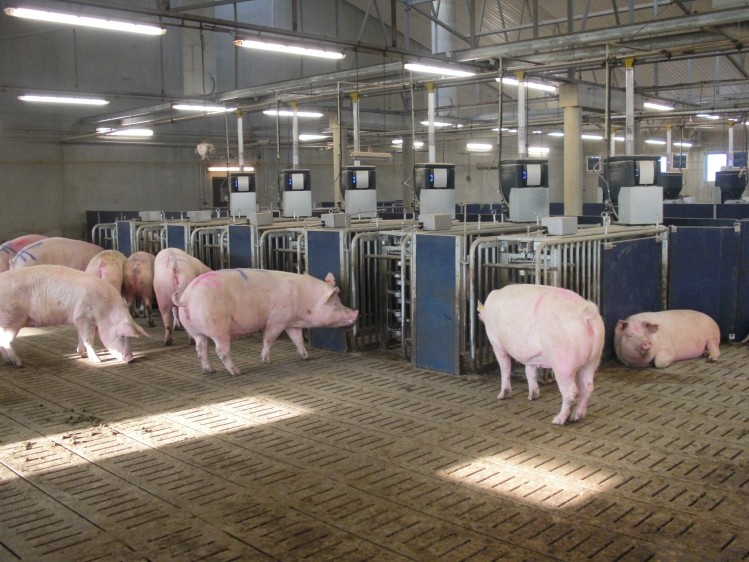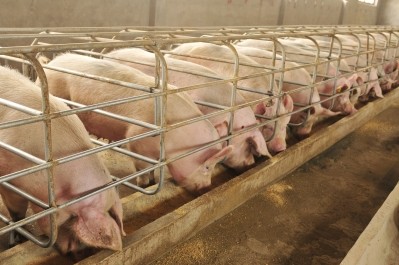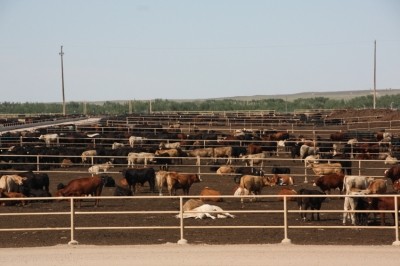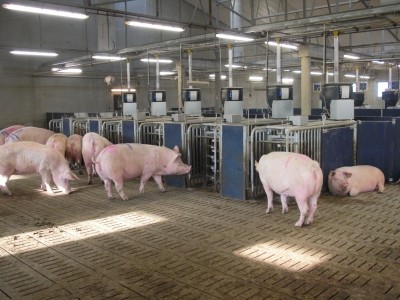Avocado waste may offer boost to pig production, meat composition

An international team of researchers tracked the influence of avocado waste when used as a feed ingredient. The group sought to fill in knowledge gaps about the use of the product in feed.
“The present study was designed to evaluate the carcass conformation, and quality and oxidative stability of M. longissimus thoracis et lumborum (LTL) from pigs fed with avocado,” said researchers.
The addition of avocado waste to the diet of finishing pigs appears to have benefits for meat quality and shelf life, they said.
“The modifications in the composition of LTL muscles in terms of lower IMF [intramuscular fat], more unsaturated fat and larger tocopherols concentrations may be regarded as positive effects of dietary avocado,” they said. “The protection of muscle lipids and proteins against oxidative reactions by the dietary avocado paste has also benefits in terms of meat quality and safety.”
Why avocado waste
Swine feed ingredients have an influence on the cost of animal production, the meat quality and the carcass conformation, said researchers. Feed costs can be about 70% of the expense involved in raising pigs.
Using waste or byproducts from agricultural production has previously been suggested as a way to reduce the costs of feed ingredients, while promoting sustainability and environmental welfare, they said.
“Previous studies have tested a variety of food and agricultural by-products for pig feeding including bread waste (Kumar et al., 2014), spent coffee grounds (Sikka & Chawla, 1986), cane molasses (Garg, Pathak, Anjaneyulu, & Lakshmanan, 1986), dairy by-products (Kjos, Øverland, Arnkværn, & Sørheim, 2000) and assorted dehydrated restaurant food waste materials (Myer, Brendemuh, & Johnson, 1999),” they said.
However, most of those experiments have centered on the toxicological and nutritional properties of the experimental feed ingredients, said researchers. Little work has been done to examine the use of novel feed ingredients on animal performance or meat quality.
Avocado production generates an excess that could be used for animal feeding, they said.
The fruit is known for offering unsaturated fatty acids, tocopherols and other phytochemcials, they said. However, almost no work has been done to evaluate the potential feed ingredient or its influence on swine production.
Experiment details
In the experiment, 16 pigs were given one of two diets for the fattening period, said researchers.
The control diet (Control) was made of sorghum meal and soybean meal, they said. The experimental (treated) diet was similar but included 30% avocado paste. Both diets included the same amount of crude protein.
The LTL muscle was examined for composition and oxidative stability, they said. It was also checked for color stability.
The LTL muscles were removed and freed from visible fat at slaughter and analyzed at that time, they said. Slices from each sample were wrapped in oxygen-permeable film and stored in the dark for 12 days. Samples were checked for color at days 0, 3, 6, 9 and 12.
Intramuscular total lipids were extracted, they said. Fatty acid profiles of the LTL muscle, fatty acid methyl esters were prepared.
Thiobarbituric acid reactive substances and protein oxidation also were checked, said researchers.
Results
Adding avocado waste to swine diets produced a difference in both the content and composition of intramuscular fat (IMF) in the tissues sampled, said researchers.
“Pigs treated with the avocado waste had significantly smaller amount of IMF and as a result, significantly higher moisture contents,” they said. “The lower tendency of animals fed on the avocado waste to deposit fat was unexpected given the higher fat, energy and daily intake (1.49 ± 0.23 kg/day vs 2.04 ± 0.24 kg/day for control and treated, respectively) in the treated group compared to the control counterparts.”
For pigs getting the experimental diet, the lipid content was reduced in LTL muscles and there was a greater degree of unsaturation and long chain polyunsaturated fatty acids, they said. The pigs also had higher levels of α-tocopherol.
The samples from pigs getting the experimental diet did not show increased oxidative instability, they said. “The results from this study show that feeding pigs with avocado waste protected LTL muscle against lipid oxidation and that may improve the quality of fresh pork in terms of safety, and sensory and nutritional quality,” they added.
“Muscles from treated pigs had significantly lower lipid and protein oxidation rates during chilled storage,” they said. “The color of the muscles from treated pigs was also preserved from oxidation.”
Pigs getting the control diet had higher levels of protein carbonyls after a period of cold storage, they said.
Source: Meat Science
Title: Avocado waste for finishing pigs: Impact on muscle composition and oxidative stability during chilled storage
DOI: doi:10.1016/j.meatsci.2016.02.018
Authors: Silvia Hernández-Lópeza, Javier Rodríguez-Carpenaa, Clemente Lemus-Floresa, Fernando Grageola-Nuñeza, Mario Estévezb,















